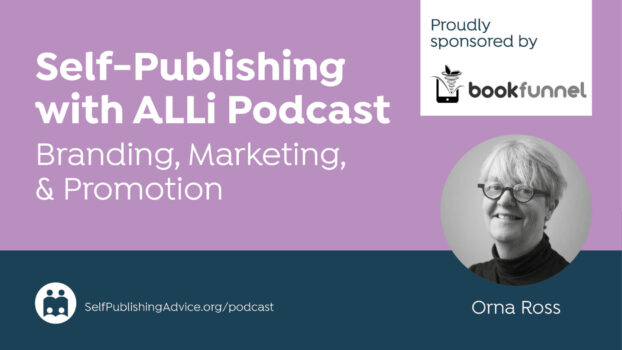I have been a published author for over twenty years, which means pre-internet and have even worked inside of the publishing industry. In that time the industry has changed from a tightly-guarded portal where only a few writers were able to eventually enter and officially become authors, to what sometimes seems like a free-for-all.
Last year, I joined in and self-published my newest thriller The List, the first book in The Wallis Jones series and everything is actually a lot more fun. I was actually offered a traditional book contract but my 25 year old son, Louie did the math on how much I would get paid in royalties from a publishing house versus setting out by myself. The difference was stark.
The only reason left to still go with a traditional house was the marketing. After all, if no one ever reads the book and if enough of them never sell it can be a little bit of a tough road. However, the truth is traditional publishers don’t lend much of a marketing hand to mid-list authors.
That’s always the way it’s been, except for the best-selling authors who got the big budget. However, the internet and social media have once again given indie authors a chance to compete with the big houses, particularly when we ban together. More on that in a moment.
To make this easier I’m going to run through the first things to do if you’re an indie author in search of a marketing plan because you want to make a living out of all of this.
1. Focus – pick a genre and run with it whether it’s historical romance that’s PG rated or steamy suspense that’s always in the South. There’s plenty of time to try out other styles of writing once you’ve built a large base of fans and have written a few books. Thinks of every layer of fans from each book as a solid foundation. Once the foundation is big enough, you’re stable enough to try other things because they know you.
2. Approach online zines that cater to your narrow corner and pitch a post about your topic and your book. Look through your novel for at least five topics that you cover and pitch yourself as a semi-expert. All of that research has probably made you pretty informed on the topic and now you can put it all to good use. For example, I have written a lot about politics for The Moderate Voice and Politicus, among others (I love a good national conspiracy centered around a family) and at the bottom is always a mention of my web site. Their readers are potentially my readers and if someone likes what they read they’re more likely to want to check out my thrillers as well.
3. Start a very simple website that has a blog with short posts that could be read on a phone and are similar to what you’ve been writing about on other sites. Make sure you ask about cross-linking with the other sites. This will raise your Search Engine Optimization or SEO and make it easier for readers who love what you write to find you. Side note, run very quickly from anyone who asks you to pay them large sums of money to create an SEO for you out of the air. There is no magic formula and a good SEO is created through what you post or how often you link. A good webmaster will tell you that very thing.
4. Don’t clutter up the website with all of your other interests. Keep it very simple. Create a main site if you need to have an umbrella. For example, I have www.marthacarr.comwith all of the bells and whistles. And now, I have www.wallisjonesseries.com that conveys quickly what the series is about, how to buy it and starting on Monday, March 3, will have a regular blog post on topics related to the theme of the series.
5. Link the posts to all of your social media so that the posts can be seen on Facebook, Twitter, Pinterest, Google+, LinkedIn, GoodReads and even Amazon on your author’s page. Be consistent with how often you post and again, keep it short.
6. Ask amateur reviewers and similar authors, who have blogs with a following, to guest post on your site. Pitch ideas about what you could post and link back and forth. This is the part where indie authors can really show their muscle. Many now have thousands of followers and can easily lift a good but obscure writer out from the clutter to let everyone know they exist. In order to convince someone with a healthy following that they should pick you will take steps one through five so they can see you’re serious about your craft from an art and business side and you’re planning on sticking around for awhile. Make sure you return the favor when the time comes and you take the time to let the world know about a few of your favorite finds. We have real power in our numbers, as this conference shows we do, but only when we keep working at being of service to each other as well as promote ourselves.
7. The last thing I’ll leave you with is trust your own instincts. Don’t let anyone sell you an expensive marketing plan, especially if they can’t give you a detailed plan that includes both traditional media mixed with some new ideas about speaking, social media, book contests, etc. Book signings don’t sell books, by the way and most traditional media sources don’t want to interview unknown indie fiction authors. So if those are cornerstones of that expensive plan, keep looking. A good public relations firm will run you between $15,000 and $20,000 for three to five months work. They should already be marketing works that are similar to yours, be able to give you references, a detailed plan and even feedback all along the way. This may be something you want to invest in down the road and it’s worth the investment in your career.
Good luck everyone and have some fun. I’ll be back later in the year with more detailed chats on writing and marketing.




